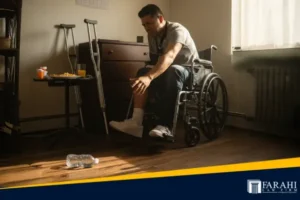Summary
Tylenol lawsuits differ from other product liability claims because they center on long-term developmental risk and scientific causation, not acute injury. These cases often proceed via multidistrict litigation, demand strong expert testimony, and place heavy weight on manufacturer warnings. Plaintiffs face unique challenges in proving causation under legal scrutiny.
Table of Contents

What makes Tylenol lawsuits so complex? Imagine a product that many trust, used commonly in pregnancy, now accused of contributing to autism or ADHD in children. This is not a straightforward injury like a broken device—it’s a long-term risk claim grounded in science.
In Los Angeles and across California, people ask whether these claims differ from other product liability claims, and what legal path might make sense. Let’s explore how these cases stand apart and what you can do if you believe your family is affected.
How Tylenol Lawsuits Differ from Typical Defective Product Claims
Feature | Typical Defective Product Case | Tylenol/Acetaminophen Lawsuits |
Timeframe | Injury or failure occurs quickly (e.g., explosion, malfunction) | Harm (autism/ADHD) may appear years later |
Type of defect | Design defect, manufacturing defect, failure to warn | Primarily, failure to warn or mislabeling of risk |
Proof burden | Show defect, causation, and harm directly | Must show general and specific causation years later |
Role of expert science | Support injury mechanics or defect | Central — epidemiology, toxicology, developmental studies |
In traditional injury cases, plaintiffs often point to a manufacturing defect or design flaw, like a malfunctioning car part or a defective appliance. But in Tylenol lawsuits, the focus is not on a sudden failure but on whether prenatal exposure increases neurodevelopmental risk. That means plaintiffs must lean heavily on scientific studies and expert testimony.
The Role of Scientific Evidence and Multidistrict Litigation (MDL)
Scientific evidence is central to Tylenol lawsuits. These cases rely on studies and expert testimony to show whether prenatal acetaminophen exposure may contribute to autism or ADHD. Courts carefully review this evidence to determine whether the link is strong enough to proceed.
Because thousands of product liability claims share the same facts, they were combined into a multidistrict litigation. MDL helps federal courts manage similar cases efficiently and ensures consistent rulings. In August 2024, the federal MDL judge dismissed all pending cases after finding insufficient scientific evidence to prove causation, though plaintiffs have appealed this decision. While some claims were denied due to limited proof, others continue in state courts under different evidentiary standards.
This process highlights how essential credible science is in proving complex injury claims and why expert guidance is key for families seeking justice.
Manufacturer Accountability: Johnson & Johnson, Retailers, and Duty to Warn
In these cases, plaintiffs often name Johnson & Johnson or its spun-off entity, Kenvue, as the manufacturer of Tylenol, including major retailers that sell the product. A key legal theory is failure to warn (a duty to warn). Under this doctrine, manufacturers must clearly disclose known risks of harmful side effects; failing to do so can render the product legally defective.
Retailers may also bear liability for distributing defective products or misrepresenting risks. In California, doctrines like market-share liability or alternative theories may sometimes apply (for example, the California precedent Sindell v. Abbott Laboratories allows allocation based on market share when the specific manufacturer cannot be identified). However, courts have generally refused to extend market share liability beyond DES-type pharmaceutical cases, and its application to Tylenol cases remains uncertain.
Challenges Plaintiffs Face in Tylenol Cases
- Proving general causation: Courts demand robust, peer-reviewed studies showing a valid scientific association between prenatal acetaminophen and developmental disorders.
- Admissibility of expert testimony: Judges may exclude experts who appear to cherry-pick data or lack proper methodology.
- Defendant’s arguments of preemption: Drug manufacturers often argue that FDA approval and labels preempt tort claims.
- Statute of limitations: Toxic exposure claims often raise questions about when the legal clock starts, especially in cases involving children.
- Burden of proving specific causation (i.e., that Tylenol, among many environmental factors, caused the injury in a particular child).
- Insurance companies and defense resources: Deep-pocketed defendants bring sophisticated defenses and expert teams.
Navigating Legal Options: Why Experienced Lawyers Matter
Given the scientific complexity and legal hurdles, seeking help from seasoned Los Angeles personal injury lawyers is vital. These attorneys understand how to:
- Retain qualified experts in epidemiology and developmental toxicology.
- Navigate MDL procedures or state court strategies.
- Analyze medical records, medical expenses, and economic damages vs non-economic damages.
- Address causation challenges and present evidence under admissibility rules.
- Assess legal options based on California’s standard versus federal.
In complex injury cases like these, your attorney’s experience can mean the difference between dismissal and recovery.
Actionable Advice for Potential Plaintiffs
If you believe your child’s condition is linked to prenatal acetaminophen exposure, consider these steps:
- Preserve all medical records from pregnancy and neonatal care.
- Record how much, when, and during which trimester Tylenol or acetaminophen was used.
- Track your child’s diagnostic history, medical treatment, therapy records, and educational assessments.
- Consult a qualified Los Angeles personal injury lawyer experienced with product liability claims early.
- Be aware of the statute of limitations; delays may jeopardize your rights.
FAQs
No. Tylenol cases focus on long-term harm and causation, not acute failure, which involves more challenging expert evidence and scientific debate.
Potentially—California may toll certain claims involving minors. But deadlines apply—consult an injury attorney in Los Angeles promptly.
Plaintiffs may seek economic damages (medical bills, therapy costs) and non-economic damages (pain, emotional distress).
Seeking Answers? Our Los Angeles Team Is Here to Help
Tylenol lawsuits are distinct from other product liability claims because they hinge on scientific causation over long timeframes, not sudden defects. The path is complex, between MDL proceedings, rigorous expert scrutiny, and state vs. federal rules.
However, pursuing a product liability lawsuit could unlock compensation for medical expenses, developmental therapies, and more for families in Los Angeles or elsewhere in California. If you suspect your child’s condition may be linked to prenatal exposure, don’t delay.
Contact us today for a free consultation. We’ll review your legal options, analyze your medical records, and help you understand how a skilled approach can make a difference.



